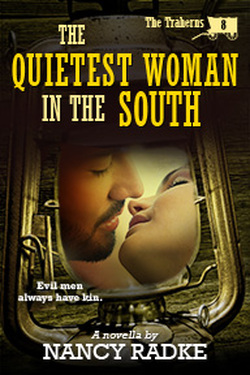I am looking for Beta readers. These are folks who get a free copy of an ebook before it goes public. Beta readers are asked to prepare a review so that when the book is published, they will be notified and should put reviews up at Amazon, Goodreads, Apple (ibooks), Nook, Kobo (as many places as possible. One is good enough, two even better).
I am writing now with a group of NYT bestselling authors, a collection of 16 authors, and they want Beta readers. My group includes myself and three others, and I will be able to offer their books to you as well. You read only the ones you are interested in. This collection contains sweet Christmas romance-type stories, all involving a pet.The book collection is named Christmas Pets & Kisses, and is currently being offered on pre-sale for 99¢.
Contact me at [email protected] if you would like to do this, either now or later. I will have more Trahern books doing out, as well as children's books and some thrillers I write with my son, Nolan Radke.
Thank you.
I am writing now with a group of NYT bestselling authors, a collection of 16 authors, and they want Beta readers. My group includes myself and three others, and I will be able to offer their books to you as well. You read only the ones you are interested in. This collection contains sweet Christmas romance-type stories, all involving a pet.The book collection is named Christmas Pets & Kisses, and is currently being offered on pre-sale for 99¢.
Contact me at [email protected] if you would like to do this, either now or later. I will have more Trahern books doing out, as well as children's books and some thrillers I write with my son, Nolan Radke.
Thank you.


